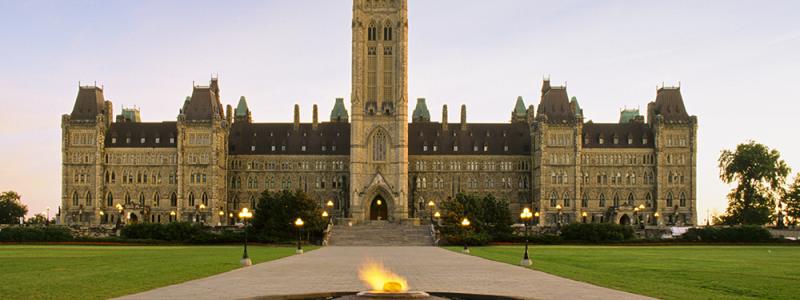Trinity Western University is heading back to court to ensure that the Law Society of Upper Canada will recognize graduates of its proposed School of Law. The hearing begins on June 6 at 10:30 a.m. at the Ontario Court of Appeal in downtown Toronto.
“This is about far more than the right to open a law school,” said TWU spokesperson Amy Robertson. “The Ontario Court of Appeal justices will be deciding on an issue that will affect freedom for everyone—not just faith communities. At TWU we believe in upholding the freedom of all Canadians to believe as they choose and practice accordingly. Canada is a diverse, tolerant society, which means we are committed to living peacefully together even when we disagree. Many in the world don’t enjoy the same privilege.”
TWU went to court in June 2015 to require the Law Society of Upper Canada to reverse its decision and honour the University's freedom of conscience and religion. The court ruled against TWU the following month, marking the only time TWU has experienced a loss in court on this matter in any province. Justice Jamie Campbell of Nova Scotia ruled in TWU’s favour in January 2015. Chief Justice Christopher Hinkson of B.C. ruled in TWU’s favour in December 2015.
This is the third appeal hearing for TWU’s School of Law in two months. Oral arguments were heard in Nova Scotia in April 2016, and in B.C. last week. Decisions are pending. No other provincial law societies have voted against approval of TWU’s future law graduates’
“The decision to approve law school graduates must be based not on personal opinions and feelings, but on the law and evidence,” said Earl Phillips, the executive director of TWU’s proposed School of Law. “The evidence shows that TWU teaches its students to work and live with the highest levels of skill and integrity. We hope the Court of Appeal will arrive at the same conclusion.”
The Law Society of Upper Canada is refusing to recognize graduates of TWU’s proposed School of Law because of the university’s Community Covenant, which sets the standards by which students, faculty and staff commit to how they will live, work and study together while at TWU. It includes a commitment to abstain from sexual intimacy outside of marriage. The Covenant follows the historical Christian definition of marriage as between a man and a woman.
Some have asked why TWU does not simply eliminate the Community Covenant or make it voluntary.
“The Community Covenant is a core part of defining the TWU community as distinctly Christian,” said Robertson. “We are not making a statement about LGBTQ people; we are making a statement about biblical marriage, which is sacred to us. The same covenant calls for all members of the TWU community to respect the dignity of others regardless of their background. Loving one another without exception is one of the most important principles of the Christian faith.”
LGBTQ students are welcome to attend the university and be open about their identities. “Based on my conversations with others in the TWU community, I know that LGBTQ students attend TWU, and they find it a safe, welcoming place to be,” said Robertson.
In 2001, the Supreme Court of Canada found no evidence that TWU graduates would discriminate against LGBTQ people. That’s proven to hold true over the last 15 years. TWU graduates, particularly from nursing, education, and business, are sought-after for their excellent academic training, compassion and skill.
Founded in 1962, Trinity Western University, in addition to broad-based liberal arts and sciences, offers professional schools in business, nursing, education, human kinetics, graduate studies, and arts, media and culture. The law school is set to become the first law school in Canada to focus on charity, small-business and entrepreneurial law.
Follow the TWU Law School Blog and @TWULawSchool for live updates during the hearing.

